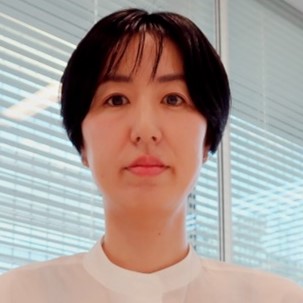
Mina Kobayashi: Lawyer admitted in Japan and New York. Member of Committee on International Human Rights, Business and Human Rights PT and Committee on National Human Rights Institution at the Japan Federation of Bar Associations (JFBA).
It has been over a decade since the UN Guiding Principles on Business and Human Rights (UNGPs) were unanimously endorsed by the UN Human Rights Council in 2011. The world has seen significant progress in the implementation of human rights principles on, and by, companies. However, progress has been slow on the UNGPs’ third pillar, which addresses the provision of effective remedies to affected rightsholders. Consequently, it remains of utmost importance toredouble efforts to promote this aspect, and the session explored this area.
The following moderators and speakers engaged in a lively discussion, regarding judicial remedies, non-judicial remedies and grievance mechanisms by non-state actors respectively:
Moderators:
Ms. Firdaus Husni, the Secretary and Expert Counsellor at the Human Rights Committee of LAWASIA
Mr. Koichi Inamori, the Secretary General at the Japan Federation of Bar Associations
Speakers:
Mr. Rajeeve Amarasuriya, the Immediate Past Secretary of the Bar Association of Sri Lanka
Mr. Edmund Bon, the co-founder of AmerBon and Collective of Applied Law & Legal Realism
Mr. Pillkyu Hwang, the Executive Director of the Transnational Human Rights Institute at Gonggam Human Rights Law Foundation
Mr. Oliver Windridge, the Director of Illicit Finance Policy at The Sentry
Ms. Mina Kobayashi, the member of International Human Rights Committee and Business and Human Rights Practice Team
When discussing judicial remedies, specific civil cases from various jurisdictions were introduced, such as the Taman Rimba Kiara case (Malaysia), the Humidifier Disinfectant case (North Korea), and the Northern Power case (Sri Lanka). It was noted that judicial procedures sometimes work, they can be time-consuming, will not always proceed smoothly and may require the exertion of pressure by social movements. Outcomes also depend very much on how far-sighted and progressive the judges are.
Non-judicial remedies, including National Contact Points (NCPs) and National Human Rights Institutions, were identified as complementary mechanisms to address the shortcomings of the judicial process. It was observed that, however, in reality, they have not lived up to expectations. For example, the number of cases filed with NCPs is limited, procedures can be lengthy, and respondent companies tend to avoid engaging in meaningful dialogue. To enhance the effectiveness of NCPs, raising awareness and educating states and respondent companies are recommended .
Regarding grievance mechanisms by non-state actors, the session also emphasized the role of the finance sector and mass media. Further, fact-finding is a key – yet challenging – component in pursuing actual remedies in any forum. This area necessitates increased attention by stakeholders.
During the question and answer session, it was reiterated that remedies must extend beyond monetary compensation and restitution. They encompass apologies, pursuit of truth, and sanctions, whether civil or criminal. Victims should be advised of their full range of remedial options – judicial or non-judicial – and the types of remedies offered. The final choice rests with the rightsholders.
All efforts under the UNGPs must aim to provide effective remedies for individuals whose rights have been impacted. The session concluded with ways for lawyers through LAWASIA to continue their collaboration to improve access to remedies for victims and rightsholders extending far beyond the borders of our own countries.
